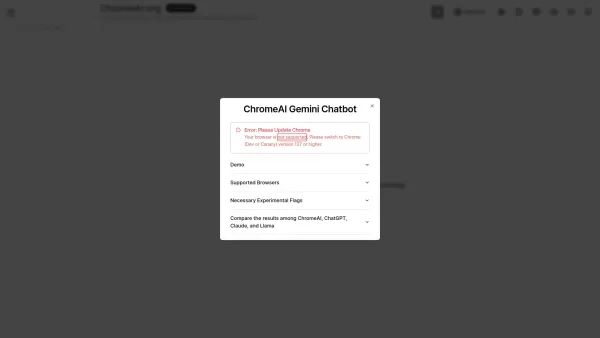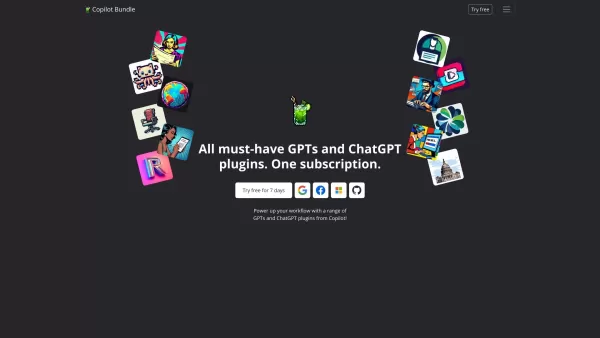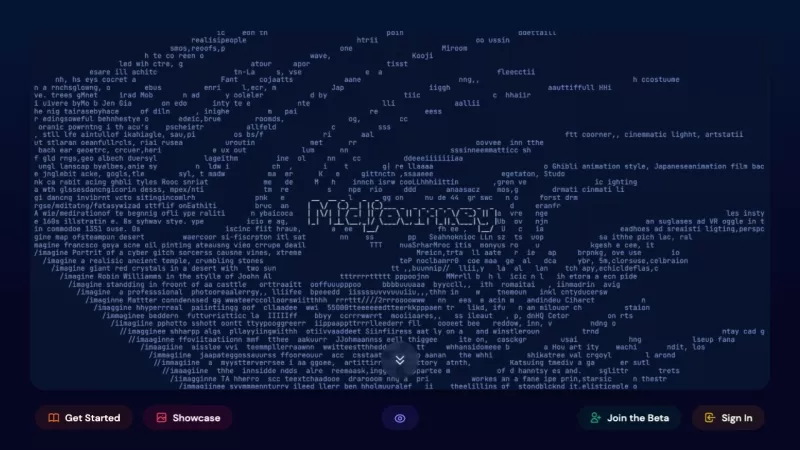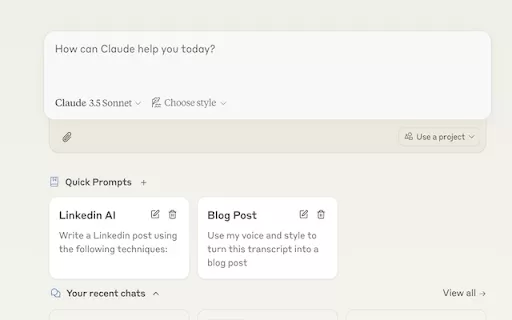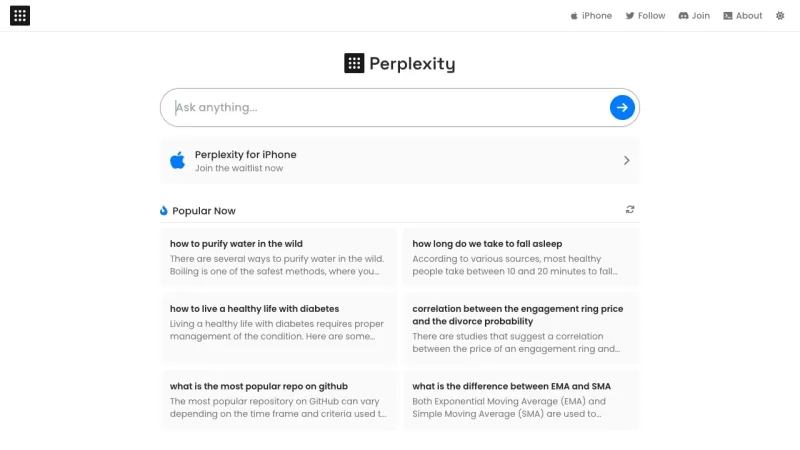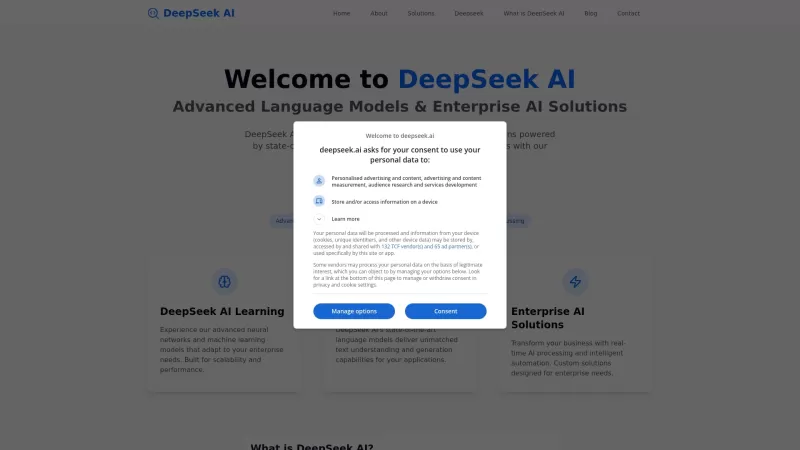Streamline Hiring: Using Text Message Platforms for Recruitment

 April 26, 2025
April 26, 2025

 AlbertWalker
AlbertWalker

 4
4
In today's fast-paced business world, efficiency is key. The hiring process, often a lengthy affair, can be greatly enhanced with the use of modern technology. Text message platforms have emerged as a game-changer for recruiters, providing a more streamlined method for communicating with candidates, scheduling interviews, and conducting initial screenings. By integrating these platforms, HR teams can boost their productivity, shorten the time-to-hire, and ultimately attract top talent more efficiently and effectively.
Key Benefits of Text Message Platforms in Recruiting
- Text message platforms significantly cut down the time spent on arranging interviews.
- Automated screening processes help quickly pinpoint candidates with the right skills.
- Candidates can schedule their own interview times, easing the administrative load.
- Recruiters can more efficiently fill their schedules with qualified candidates.
- The recruiting landscape is shifting towards constant availability.
- Companies are increasingly using text messaging for initial interviews and communications.
- Text message platforms enhance communication, leading to a quicker time-to-hire.
- These platforms contribute to a better overall experience for candidates.
The Power of Text Message Platforms in Recruiting
What is Text Message Platform Recruiting?
Text message platform recruiting harnesses SMS and MMS technologies to streamline communication with potential hires, schedule interviews, and manage the recruitment process. Unlike traditional methods that often involve slow email exchanges and phone calls, text message recruiting offers a faster, more direct, and more convenient way to engage with candidates. It leverages the widespread use of mobile phones to tap into a larger talent pool and speed up hiring.
By incorporating text message platforms, companies can automate various recruitment stages, including sending initial screening questions, scheduling interviews, providing updates, and even conducting preliminary interviews via text. This immediacy ensures candidates respond promptly, minimizing delays and enhancing their overall experience. Text message platform recruiting helps companies achieve:
- Faster time-to-hire by accelerating the recruitment process.
- Better candidate engagement through higher response rates and satisfaction.
- Greater efficiency by automating repetitive tasks, freeing up recruiters' time.
- Wider reach, connecting with candidates who may not regularly check emails or job boards.
- Improved communication, keeping candidates informed and engaged.
The evolution of recruitment technology is reshaping how companies identify and onboard talent. By adopting innovative tools like text message platforms, organizations can gain a competitive edge in securing top-tier employees. This modern approach not only streamlines recruitment but also improves the experience for both recruiters and candidates, leading to better hiring outcomes.
The Challenges of Traditional Recruiting
Traditional recruiting methods often come with inefficiencies that can slow down the hiring process and increase costs. These methods rely heavily on manual tasks, extensive email communication, and phone calls, which can lead to delays and communication bottlenecks.
A major challenge is the time-consuming process of reviewing resumes and scheduling interviews. Recruiters can spend hours manually sifting through applications to find relevant skills and experience, a process prone to errors. Coordinating interview schedules with multiple candidates and hiring managers also involves a lot of back-and-forth, further delaying the process.
Another issue is the lack of real-time engagement with candidates. Email communication can be slow, with candidates often taking days to respond, leading to missed opportunities and a longer time-to-hire. Traditional methods may also struggle to reach candidates who are not actively job-seeking or those who prefer more immediate communication.
Moreover, traditional recruiting can be costly, with expenses related to job postings, advertising, and recruiter time. The longer it takes to fill a position, the more it costs the company in lost productivity and revenue.
In summary, traditional recruiting's inefficiencies include:
- Manual resume screening, which is time-consuming and error-prone.
- Scheduling bottlenecks that delay the process.
- Slow communication via email and phone calls.
- Limited reach in engaging passive candidates.
- High costs associated with job postings and recruiter time.
These challenges underscore the need for more streamlined and efficient recruiting solutions. Text message platforms offer a promising alternative by automating key tasks, improving communication, and reducing the overall time and cost of hiring.
The Future of Recruiting: 24/7 Availability
Evolving Towards Continuous Engagement
One of the most exciting trends in recruiting is the shift towards 24/7 availability.
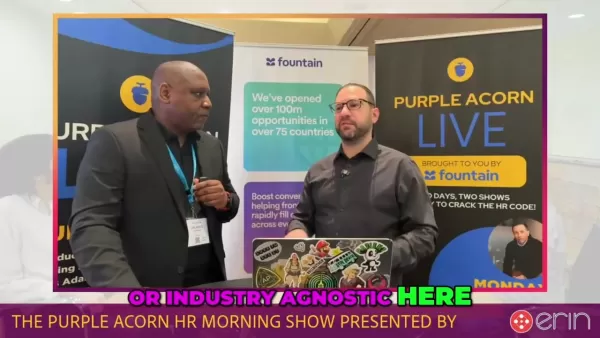
With the rise of technology, candidates expect to engage with companies at any time, from anywhere. Text message platforms facilitate this by offering a convenient and accessible way for candidates to connect with recruiters and access job information.
24/7 availability can manifest in various ways, including:
- Automated Chatbots: These can answer common candidate questions, provide information about job openings, and guide candidates through the application process, available 24/7.
- On-Demand Interviews: Some companies experiment with on-demand interviews, where candidates record themselves answering questions at their convenience, allowing recruiters to assess candidates more flexibly.
- Real-Time Text Support: Recruiters can offer real-time text support to address candidate queries and concerns as they arise, enhancing the candidate experience and building a positive employer brand.
By embracing 24/7 availability, companies can demonstrate their commitment to candidate engagement, creating a more positive and accessible recruitment experience. This can help attract top talent and give them a competitive edge in the talent market. The idea of 24/7 interviews using technology is truly innovative.
Overcoming Technology Barriers in Recruiting
While technology offers numerous benefits in recruiting, it's important to address potential barriers to ensure all candidates have equal access to opportunities. Accessibility is a key concern; not all candidates may have smartphones or reliable internet. Therefore, it's crucial to provide alternative communication methods like phone calls or emails for those unable to participate in text message recruiting.
Language is another important factor. If your candidate pool includes individuals who speak different languages, it's essential to offer multilingual support in your text message recruiting campaigns. This may involve translating messages or providing access to multilingual recruiters.
Additionally, it's important to be aware of potential biases in automated screening processes. Algorithms used to screen candidates may inadvertently discriminate against certain groups, leading to unfair hiring outcomes. Regular audits and refinements of these algorithms are crucial to ensure fairness and equity.
By addressing these technology barriers, companies can ensure their recruitment processes are inclusive and equitable, providing all candidates with equal opportunities to succeed.
Leveraging Text Message Platforms for Recruiting
Step-by-Step Guide to Streamlining Your Hiring Process
Integrating a text message platform into your recruitment strategy can significantly streamline the hiring process. Here's a step-by-step guide to help you get started:
- Choose the Right Platform:
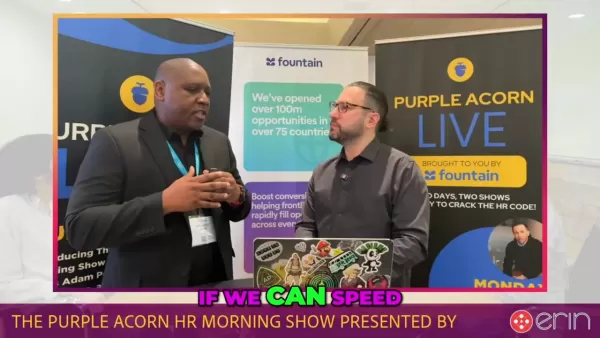
Select a text message platform that integrates with your existing HR systems and offers features tailored to recruiting, such as automated messaging, scheduling, and candidate tracking.
- Set Up Automated Messaging: Create automated text message sequences for different stages of the recruitment process, including initial screening questions, interview reminders, and follow-up messages.
- Promote Text Recruiting: Inform candidates about your text message recruiting option by including it in job postings and on your career website. Encourage them to opt-in for text updates.
- Screen Candidates via Text: Use text messages to ask initial screening questions and quickly assess candidate qualifications, helping you filter out unqualified candidates and focus on those who are a better fit.
- Schedule Interviews via Text: Allow candidates to schedule interviews directly through text messages, either by providing a link to a scheduling tool or using automated text commands.
- Send Interview Reminders: Send automated text message reminders to candidates before their scheduled interviews to reduce no-shows and ensure they are prepared.
- Provide Updates and Feedback: Use text messages to keep candidates updated on their application status and to solicit feedback after interviews, enhancing the candidate experience and building a positive employer brand.
- Track and Analyze Results: Monitor the performance of your text message recruiting campaigns by tracking metrics like response rates, time-to-hire, and candidate satisfaction. Use this data to optimize your approach and improve results.
By following these steps, you can effectively leverage text message platforms to streamline your hiring process and improve your recruitment outcomes. This modern approach not only saves time and resources but also enhances the overall experience for both recruiters and candidates.
Understanding the Costs of Text Message Platforms
Evaluating Pricing Models and Options
The pricing of text message platforms varies based on features, message volume, and the size of your candidate pool. Here's a breakdown of common pricing models:
- Pay-as-you-go: You're charged for each text message sent, ideal for companies with low-volume recruiting needs.
- Monthly Subscription: A fixed monthly fee for a set number of text messages, suitable for companies with moderate recruiting needs.
- Enterprise Pricing: Customized pricing and features for large companies with high-volume recruiting needs.
Here's a comparison table of different text message platforms and their pricing models:
Platform Pricing Model Features Fountain Custom Pricing Automated Messaging, Scheduling, Candidate Tracking, Integration with HR Systems TextRecruit Monthly Subscription Automated Messaging, Screening, Interview Scheduling, Real-Time Support ZipRecruiter Pay-as-you-go Job Postings, Resume Screening, Candidate Tracking, Text Message Recruiting Indeed Pay-per-click Job Postings, Resume Database, Candidate Screening, Text Message Recruiting
When evaluating pricing, consider factors such as the number of messages you plan to send each month, the features you need, the size of your candidate pool, and your budget. By carefully evaluating your options, you can choose a text message platform that meets your recruiting needs and fits your budget.
Advantages and Disadvantages of Text Message Recruiting
Pros
- Improved Communication Speed
- Enhanced Candidate Engagement
- Streamlined Scheduling
- Automated Screening
- Wider Reach
Cons
- Potential for Impersonality
- Risk of Misinterpretation
- Compliance Concerns
- Accessibility Barriers
- Data Security Risks
Essential Features of Text Message Platforms for Recruiters
Maximizing Your Recruiting Potential with Key Features
Text message platforms offer various features designed to streamline the recruitment process and enhance candidate engagement. Here are some essential features to consider:
- Automated Messaging: Create automated text message sequences for different recruitment stages, saving time and ensuring candidates are informed and engaged.
- Scheduling: Allow candidates to self-schedule interviews through text messages, reducing administrative overhead and improving efficiency.
- Candidate Tracking: Track the status of candidates throughout the recruitment process, from application to final offer, ensuring no one is overlooked.
- Integration with HR Systems: Integrate the text message platform with your existing HR systems, such as your applicant tracking system (ATS) and human resources information system (HRIS), to streamline workflows and maintain data consistency.
- Real-Time Support: Provide real-time support to candidates, addressing their questions and concerns promptly, which can improve their experience and build a positive employer brand.
By leveraging these essential features, you can maximize the benefits of text message platforms and improve your recruitment outcomes.
Real-World Use Cases of Text Message Recruiting
Transforming Industries with Text Messaging
Text message recruiting has proven effective across various industries and job roles. Here are a few real-world use cases that highlight its impact:
- High-Volume Hiring: For companies hiring large numbers of hourly workers, such as in retail or hospitality, text message recruiting speeds up the process. Recruiters can quickly screen candidates, schedule interviews, and send onboarding information, filling positions more efficiently.
- Remote Recruiting: For companies hiring remote workers, text message recruiting helps bridge the distance and engage candidates in real-time. Recruiters can conduct virtual interviews, share company culture videos, and provide remote onboarding instructions, ensuring remote workers feel connected and supported.
- Niche Recruiting: For companies hiring for specialized roles or in niche industries, text message recruiting helps reach a wider pool of qualified candidates. Recruiters can target candidates based on their skills and experience, providing personalized information about the role and the company.
- Early Career Recruiting: Text message recruiting is particularly effective for engaging younger candidates accustomed to texting. Recruiters can promote internships, entry-level positions, and early career programs, offering information about career paths and development opportunities.
The versatility of text message recruiting makes it a valuable tool for companies of all sizes and across all industries. By tailoring their approach to specific use cases, organizations can maximize the benefits of text messaging and improve their recruitment outcomes.
Frequently Asked Questions
Is text message recruiting compliant with regulations like TCPA and GDPR?
Yes, but it's crucial to implement compliant practices. Obtain explicit consent from candidates before sending text messages. Provide clear opt-out instructions and promptly honor all opt-out requests. Ensure your platform and practices adhere to data protection regulations like GDPR, especially concerning data storage and usage.
How can I prevent my recruiting texts from being mistaken as spam?
Always identify yourself and your company in the initial message. Personalize messages to make them relevant to the candidate. Avoid using excessive abbreviations, slang, or all-caps text. Provide value in your messages, such as helpful information about the job or company. Most importantly, only text candidates who have opted in to receive messages from you.
What response rate can I expect from text message recruiting?
Response rates for text message recruiting are generally much higher than traditional methods like email. You can expect response rates of 30-50% or even higher. However, response rates can vary depending on factors such as the relevance of the message, the timing of the message, and the candidate's level of interest in the job.
How can I measure the ROI of text message recruiting?
To measure the ROI of text message recruiting, track metrics such as time-to-hire, cost-per-hire, candidate engagement, and candidate satisfaction. Compare these metrics to those of traditional recruiting methods to determine the effectiveness of text message recruiting. You can also track the number of hires made through text message recruiting and the revenue generated by those hires.
Related Questions
How can I integrate text message recruiting with my existing HR systems?
Integrating text message recruiting with your existing HR systems can streamline your workflow and improve data accuracy. Look for text message platforms that offer integrations with popular applicant tracking systems (ATS) and human resources information systems (HRIS). These integrations can automate tasks such as transferring candidate data, scheduling interviews, and updating candidate status. This not only saves time but also ensures that all your systems are in sync.
What are some best practices for crafting effective recruiting text messages?
Crafting effective recruiting text messages requires a focus on clarity, conciseness, and personalization. Keep your messages short and to the point, highlighting the most important information about the job or company. Use a friendly and professional tone, and avoid using slang or jargon that candidates may not understand. Personalize your messages to make them relevant to the candidate, and always include a clear call to action, such as scheduling an interview or applying for the job.
What are the potential legal risks associated with text message recruiting?
Text message recruiting is subject to various legal regulations, including the Telephone Consumer Protection Act (TCPA) and the General Data Protection Regulation (GDPR). To mitigate these risks, obtain explicit consent from candidates before sending text messages. Provide clear opt-out instructions and promptly honor all opt-out requests. Ensure your platform and practices adhere to data protection regulations like GDPR, especially concerning data storage and usage. Consult with legal counsel to ensure your text message recruiting practices are compliant with all applicable laws and regulations.
Related article
 Transform Scanned PDFs with Adobe Illustrator Editing Tools
In today's digital world, dealing with scanned documents is almost inevitable. From job application letters to contracts, these documents often require edits. While Adobe Illustrator is renowned for graphic design, it's also an effective tool for tweaking scanned PDFs. This guide will walk you throu
Transform Scanned PDFs with Adobe Illustrator Editing Tools
In today's digital world, dealing with scanned documents is almost inevitable. From job application letters to contracts, these documents often require edits. While Adobe Illustrator is renowned for graphic design, it's also an effective tool for tweaking scanned PDFs. This guide will walk you throu
 Kore.ai Partners with G42's Inception to Launch AI-Powered Enterprise Products
Kore.ai and Inception Join Forces to Revolutionize AI-Powered Enterprise Solutions
Kore.ai has entered into a strategic partnership with Inception, a division of the UAE-based G42, to co-develop AI-driven products for the enterprise market. This collaboration merges Inception's robust AI product de
Kore.ai Partners with G42's Inception to Launch AI-Powered Enterprise Products
Kore.ai and Inception Join Forces to Revolutionize AI-Powered Enterprise Solutions
Kore.ai has entered into a strategic partnership with Inception, a division of the UAE-based G42, to co-develop AI-driven products for the enterprise market. This collaboration merges Inception's robust AI product de
 7 Immediate Fixes to Make Windows 11 Less Annoying
Every time I come across someone venting about their frustrations with Windows 11, I can't help but shake my head and think, *I tried to warn you.* Back in the day, I penned an article titled "Here's why Windows PCs are only going to get more annoying." The gist of it? Microsoft has been turning Win
Comments (0)
0/200
7 Immediate Fixes to Make Windows 11 Less Annoying
Every time I come across someone venting about their frustrations with Windows 11, I can't help but shake my head and think, *I tried to warn you.* Back in the day, I penned an article titled "Here's why Windows PCs are only going to get more annoying." The gist of it? Microsoft has been turning Win
Comments (0)
0/200

 April 26, 2025
April 26, 2025

 AlbertWalker
AlbertWalker

 4
4
In today's fast-paced business world, efficiency is key. The hiring process, often a lengthy affair, can be greatly enhanced with the use of modern technology. Text message platforms have emerged as a game-changer for recruiters, providing a more streamlined method for communicating with candidates, scheduling interviews, and conducting initial screenings. By integrating these platforms, HR teams can boost their productivity, shorten the time-to-hire, and ultimately attract top talent more efficiently and effectively.
Key Benefits of Text Message Platforms in Recruiting
- Text message platforms significantly cut down the time spent on arranging interviews.
- Automated screening processes help quickly pinpoint candidates with the right skills.
- Candidates can schedule their own interview times, easing the administrative load.
- Recruiters can more efficiently fill their schedules with qualified candidates.
- The recruiting landscape is shifting towards constant availability.
- Companies are increasingly using text messaging for initial interviews and communications.
- Text message platforms enhance communication, leading to a quicker time-to-hire.
- These platforms contribute to a better overall experience for candidates.
The Power of Text Message Platforms in Recruiting
What is Text Message Platform Recruiting?
Text message platform recruiting harnesses SMS and MMS technologies to streamline communication with potential hires, schedule interviews, and manage the recruitment process. Unlike traditional methods that often involve slow email exchanges and phone calls, text message recruiting offers a faster, more direct, and more convenient way to engage with candidates. It leverages the widespread use of mobile phones to tap into a larger talent pool and speed up hiring.
By incorporating text message platforms, companies can automate various recruitment stages, including sending initial screening questions, scheduling interviews, providing updates, and even conducting preliminary interviews via text. This immediacy ensures candidates respond promptly, minimizing delays and enhancing their overall experience. Text message platform recruiting helps companies achieve:
- Faster time-to-hire by accelerating the recruitment process.
- Better candidate engagement through higher response rates and satisfaction.
- Greater efficiency by automating repetitive tasks, freeing up recruiters' time.
- Wider reach, connecting with candidates who may not regularly check emails or job boards.
- Improved communication, keeping candidates informed and engaged.
The evolution of recruitment technology is reshaping how companies identify and onboard talent. By adopting innovative tools like text message platforms, organizations can gain a competitive edge in securing top-tier employees. This modern approach not only streamlines recruitment but also improves the experience for both recruiters and candidates, leading to better hiring outcomes.
The Challenges of Traditional Recruiting
Traditional recruiting methods often come with inefficiencies that can slow down the hiring process and increase costs. These methods rely heavily on manual tasks, extensive email communication, and phone calls, which can lead to delays and communication bottlenecks.
A major challenge is the time-consuming process of reviewing resumes and scheduling interviews. Recruiters can spend hours manually sifting through applications to find relevant skills and experience, a process prone to errors. Coordinating interview schedules with multiple candidates and hiring managers also involves a lot of back-and-forth, further delaying the process.
Another issue is the lack of real-time engagement with candidates. Email communication can be slow, with candidates often taking days to respond, leading to missed opportunities and a longer time-to-hire. Traditional methods may also struggle to reach candidates who are not actively job-seeking or those who prefer more immediate communication.
Moreover, traditional recruiting can be costly, with expenses related to job postings, advertising, and recruiter time. The longer it takes to fill a position, the more it costs the company in lost productivity and revenue.
In summary, traditional recruiting's inefficiencies include:
- Manual resume screening, which is time-consuming and error-prone.
- Scheduling bottlenecks that delay the process.
- Slow communication via email and phone calls.
- Limited reach in engaging passive candidates.
- High costs associated with job postings and recruiter time.
These challenges underscore the need for more streamlined and efficient recruiting solutions. Text message platforms offer a promising alternative by automating key tasks, improving communication, and reducing the overall time and cost of hiring.
The Future of Recruiting: 24/7 Availability
Evolving Towards Continuous Engagement
One of the most exciting trends in recruiting is the shift towards 24/7 availability.

With the rise of technology, candidates expect to engage with companies at any time, from anywhere. Text message platforms facilitate this by offering a convenient and accessible way for candidates to connect with recruiters and access job information.
24/7 availability can manifest in various ways, including:
- Automated Chatbots: These can answer common candidate questions, provide information about job openings, and guide candidates through the application process, available 24/7.
- On-Demand Interviews: Some companies experiment with on-demand interviews, where candidates record themselves answering questions at their convenience, allowing recruiters to assess candidates more flexibly.
- Real-Time Text Support: Recruiters can offer real-time text support to address candidate queries and concerns as they arise, enhancing the candidate experience and building a positive employer brand.
By embracing 24/7 availability, companies can demonstrate their commitment to candidate engagement, creating a more positive and accessible recruitment experience. This can help attract top talent and give them a competitive edge in the talent market. The idea of 24/7 interviews using technology is truly innovative.
Overcoming Technology Barriers in Recruiting
While technology offers numerous benefits in recruiting, it's important to address potential barriers to ensure all candidates have equal access to opportunities. Accessibility is a key concern; not all candidates may have smartphones or reliable internet. Therefore, it's crucial to provide alternative communication methods like phone calls or emails for those unable to participate in text message recruiting.
Language is another important factor. If your candidate pool includes individuals who speak different languages, it's essential to offer multilingual support in your text message recruiting campaigns. This may involve translating messages or providing access to multilingual recruiters.
Additionally, it's important to be aware of potential biases in automated screening processes. Algorithms used to screen candidates may inadvertently discriminate against certain groups, leading to unfair hiring outcomes. Regular audits and refinements of these algorithms are crucial to ensure fairness and equity.
By addressing these technology barriers, companies can ensure their recruitment processes are inclusive and equitable, providing all candidates with equal opportunities to succeed.
Leveraging Text Message Platforms for Recruiting
Step-by-Step Guide to Streamlining Your Hiring Process
Integrating a text message platform into your recruitment strategy can significantly streamline the hiring process. Here's a step-by-step guide to help you get started:
- Choose the Right Platform:

Select a text message platform that integrates with your existing HR systems and offers features tailored to recruiting, such as automated messaging, scheduling, and candidate tracking.
- Set Up Automated Messaging: Create automated text message sequences for different stages of the recruitment process, including initial screening questions, interview reminders, and follow-up messages.
- Promote Text Recruiting: Inform candidates about your text message recruiting option by including it in job postings and on your career website. Encourage them to opt-in for text updates.
- Screen Candidates via Text: Use text messages to ask initial screening questions and quickly assess candidate qualifications, helping you filter out unqualified candidates and focus on those who are a better fit.
- Schedule Interviews via Text: Allow candidates to schedule interviews directly through text messages, either by providing a link to a scheduling tool or using automated text commands.
- Send Interview Reminders: Send automated text message reminders to candidates before their scheduled interviews to reduce no-shows and ensure they are prepared.
- Provide Updates and Feedback: Use text messages to keep candidates updated on their application status and to solicit feedback after interviews, enhancing the candidate experience and building a positive employer brand.
- Track and Analyze Results: Monitor the performance of your text message recruiting campaigns by tracking metrics like response rates, time-to-hire, and candidate satisfaction. Use this data to optimize your approach and improve results.
By following these steps, you can effectively leverage text message platforms to streamline your hiring process and improve your recruitment outcomes. This modern approach not only saves time and resources but also enhances the overall experience for both recruiters and candidates.
Understanding the Costs of Text Message Platforms
Evaluating Pricing Models and Options
The pricing of text message platforms varies based on features, message volume, and the size of your candidate pool. Here's a breakdown of common pricing models:
- Pay-as-you-go: You're charged for each text message sent, ideal for companies with low-volume recruiting needs.
- Monthly Subscription: A fixed monthly fee for a set number of text messages, suitable for companies with moderate recruiting needs.
- Enterprise Pricing: Customized pricing and features for large companies with high-volume recruiting needs.
Here's a comparison table of different text message platforms and their pricing models:
| Platform | Pricing Model | Features |
|---|---|---|
| Fountain | Custom Pricing | Automated Messaging, Scheduling, Candidate Tracking, Integration with HR Systems |
| TextRecruit | Monthly Subscription | Automated Messaging, Screening, Interview Scheduling, Real-Time Support |
| ZipRecruiter | Pay-as-you-go | Job Postings, Resume Screening, Candidate Tracking, Text Message Recruiting |
| Indeed | Pay-per-click | Job Postings, Resume Database, Candidate Screening, Text Message Recruiting |
When evaluating pricing, consider factors such as the number of messages you plan to send each month, the features you need, the size of your candidate pool, and your budget. By carefully evaluating your options, you can choose a text message platform that meets your recruiting needs and fits your budget.
Advantages and Disadvantages of Text Message Recruiting
Pros
- Improved Communication Speed
- Enhanced Candidate Engagement
- Streamlined Scheduling
- Automated Screening
- Wider Reach
Cons
- Potential for Impersonality
- Risk of Misinterpretation
- Compliance Concerns
- Accessibility Barriers
- Data Security Risks
Essential Features of Text Message Platforms for Recruiters
Maximizing Your Recruiting Potential with Key Features
Text message platforms offer various features designed to streamline the recruitment process and enhance candidate engagement. Here are some essential features to consider:
- Automated Messaging: Create automated text message sequences for different recruitment stages, saving time and ensuring candidates are informed and engaged.
- Scheduling: Allow candidates to self-schedule interviews through text messages, reducing administrative overhead and improving efficiency.
- Candidate Tracking: Track the status of candidates throughout the recruitment process, from application to final offer, ensuring no one is overlooked.
- Integration with HR Systems: Integrate the text message platform with your existing HR systems, such as your applicant tracking system (ATS) and human resources information system (HRIS), to streamline workflows and maintain data consistency.
- Real-Time Support: Provide real-time support to candidates, addressing their questions and concerns promptly, which can improve their experience and build a positive employer brand.
By leveraging these essential features, you can maximize the benefits of text message platforms and improve your recruitment outcomes.
Real-World Use Cases of Text Message Recruiting
Transforming Industries with Text Messaging
Text message recruiting has proven effective across various industries and job roles. Here are a few real-world use cases that highlight its impact:
- High-Volume Hiring: For companies hiring large numbers of hourly workers, such as in retail or hospitality, text message recruiting speeds up the process. Recruiters can quickly screen candidates, schedule interviews, and send onboarding information, filling positions more efficiently.
- Remote Recruiting: For companies hiring remote workers, text message recruiting helps bridge the distance and engage candidates in real-time. Recruiters can conduct virtual interviews, share company culture videos, and provide remote onboarding instructions, ensuring remote workers feel connected and supported.
- Niche Recruiting: For companies hiring for specialized roles or in niche industries, text message recruiting helps reach a wider pool of qualified candidates. Recruiters can target candidates based on their skills and experience, providing personalized information about the role and the company.
- Early Career Recruiting: Text message recruiting is particularly effective for engaging younger candidates accustomed to texting. Recruiters can promote internships, entry-level positions, and early career programs, offering information about career paths and development opportunities.
The versatility of text message recruiting makes it a valuable tool for companies of all sizes and across all industries. By tailoring their approach to specific use cases, organizations can maximize the benefits of text messaging and improve their recruitment outcomes.
Frequently Asked Questions
Is text message recruiting compliant with regulations like TCPA and GDPR?
Yes, but it's crucial to implement compliant practices. Obtain explicit consent from candidates before sending text messages. Provide clear opt-out instructions and promptly honor all opt-out requests. Ensure your platform and practices adhere to data protection regulations like GDPR, especially concerning data storage and usage.
How can I prevent my recruiting texts from being mistaken as spam?
Always identify yourself and your company in the initial message. Personalize messages to make them relevant to the candidate. Avoid using excessive abbreviations, slang, or all-caps text. Provide value in your messages, such as helpful information about the job or company. Most importantly, only text candidates who have opted in to receive messages from you.
What response rate can I expect from text message recruiting?
Response rates for text message recruiting are generally much higher than traditional methods like email. You can expect response rates of 30-50% or even higher. However, response rates can vary depending on factors such as the relevance of the message, the timing of the message, and the candidate's level of interest in the job.
How can I measure the ROI of text message recruiting?
To measure the ROI of text message recruiting, track metrics such as time-to-hire, cost-per-hire, candidate engagement, and candidate satisfaction. Compare these metrics to those of traditional recruiting methods to determine the effectiveness of text message recruiting. You can also track the number of hires made through text message recruiting and the revenue generated by those hires.
Related Questions
How can I integrate text message recruiting with my existing HR systems?
Integrating text message recruiting with your existing HR systems can streamline your workflow and improve data accuracy. Look for text message platforms that offer integrations with popular applicant tracking systems (ATS) and human resources information systems (HRIS). These integrations can automate tasks such as transferring candidate data, scheduling interviews, and updating candidate status. This not only saves time but also ensures that all your systems are in sync.
What are some best practices for crafting effective recruiting text messages?
Crafting effective recruiting text messages requires a focus on clarity, conciseness, and personalization. Keep your messages short and to the point, highlighting the most important information about the job or company. Use a friendly and professional tone, and avoid using slang or jargon that candidates may not understand. Personalize your messages to make them relevant to the candidate, and always include a clear call to action, such as scheduling an interview or applying for the job.
What are the potential legal risks associated with text message recruiting?
Text message recruiting is subject to various legal regulations, including the Telephone Consumer Protection Act (TCPA) and the General Data Protection Regulation (GDPR). To mitigate these risks, obtain explicit consent from candidates before sending text messages. Provide clear opt-out instructions and promptly honor all opt-out requests. Ensure your platform and practices adhere to data protection regulations like GDPR, especially concerning data storage and usage. Consult with legal counsel to ensure your text message recruiting practices are compliant with all applicable laws and regulations.
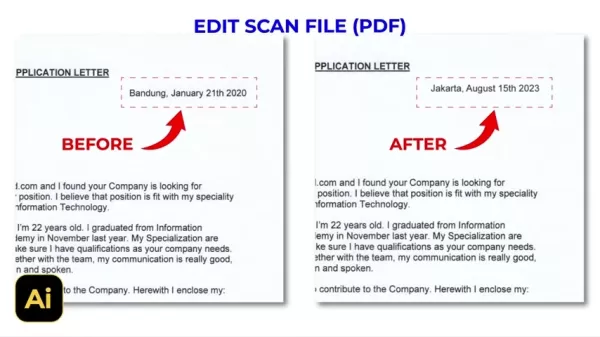 Transform Scanned PDFs with Adobe Illustrator Editing Tools
In today's digital world, dealing with scanned documents is almost inevitable. From job application letters to contracts, these documents often require edits. While Adobe Illustrator is renowned for graphic design, it's also an effective tool for tweaking scanned PDFs. This guide will walk you throu
Transform Scanned PDFs with Adobe Illustrator Editing Tools
In today's digital world, dealing with scanned documents is almost inevitable. From job application letters to contracts, these documents often require edits. While Adobe Illustrator is renowned for graphic design, it's also an effective tool for tweaking scanned PDFs. This guide will walk you throu
 Kore.ai Partners with G42's Inception to Launch AI-Powered Enterprise Products
Kore.ai and Inception Join Forces to Revolutionize AI-Powered Enterprise Solutions
Kore.ai has entered into a strategic partnership with Inception, a division of the UAE-based G42, to co-develop AI-driven products for the enterprise market. This collaboration merges Inception's robust AI product de
Kore.ai Partners with G42's Inception to Launch AI-Powered Enterprise Products
Kore.ai and Inception Join Forces to Revolutionize AI-Powered Enterprise Solutions
Kore.ai has entered into a strategic partnership with Inception, a division of the UAE-based G42, to co-develop AI-driven products for the enterprise market. This collaboration merges Inception's robust AI product de
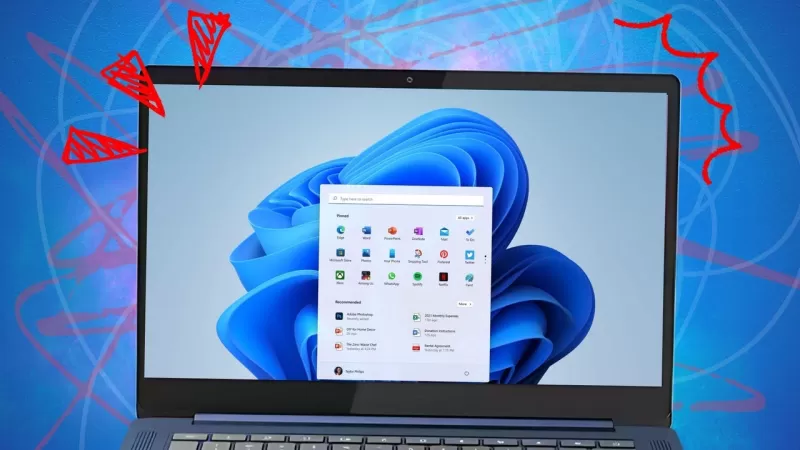 7 Immediate Fixes to Make Windows 11 Less Annoying
Every time I come across someone venting about their frustrations with Windows 11, I can't help but shake my head and think, *I tried to warn you.* Back in the day, I penned an article titled "Here's why Windows PCs are only going to get more annoying." The gist of it? Microsoft has been turning Win
7 Immediate Fixes to Make Windows 11 Less Annoying
Every time I come across someone venting about their frustrations with Windows 11, I can't help but shake my head and think, *I tried to warn you.* Back in the day, I penned an article titled "Here's why Windows PCs are only going to get more annoying." The gist of it? Microsoft has been turning Win
